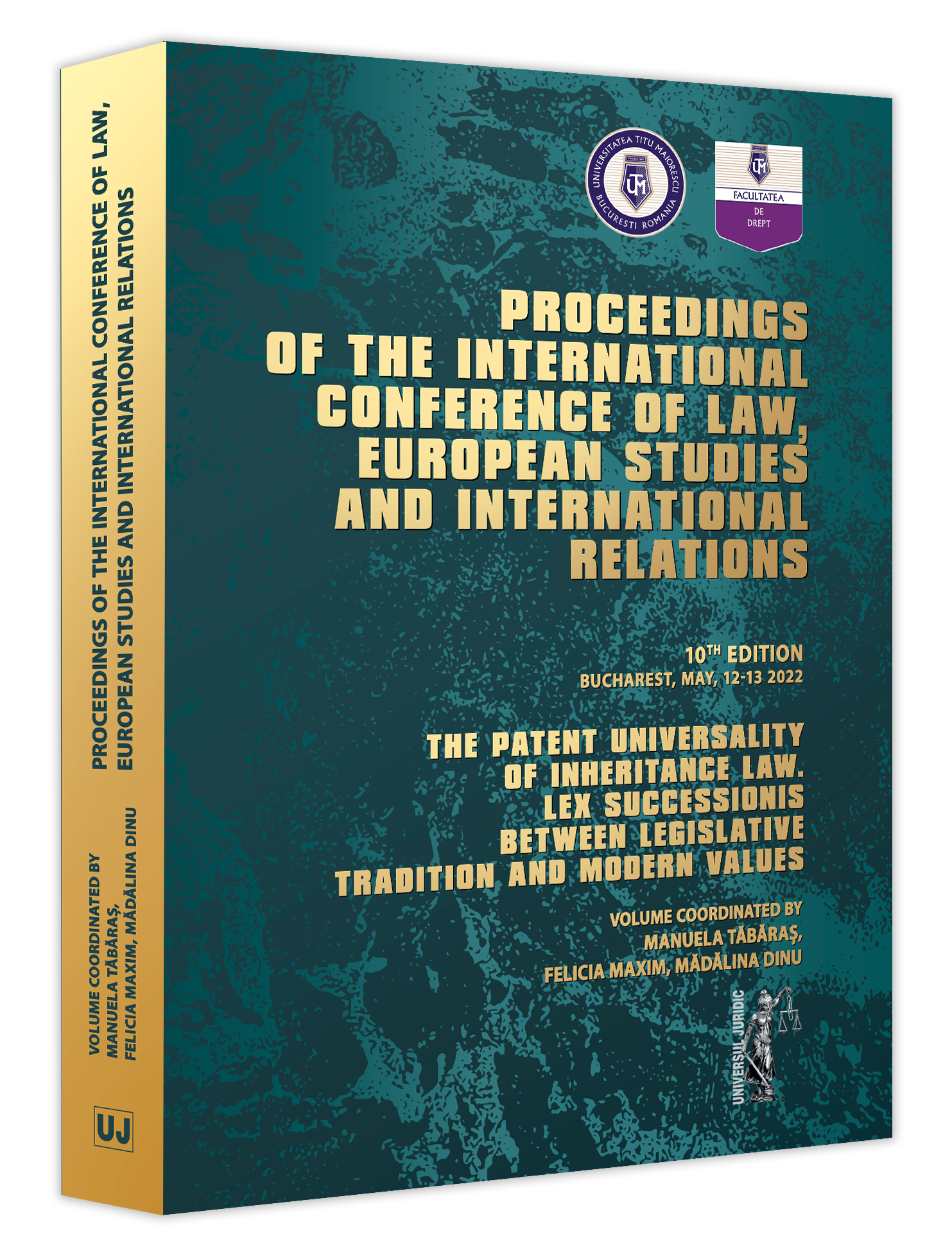PROPERTY PROTECTION IN THE CASE LAW OF THE EUROPEAN COURT OF HUMAN RIGHTS: SPECIAL ANALYSIS OF VULNERABLE GROUPS
PROPERTY PROTECTION IN THE CASE LAW OF THE EUROPEAN COURT OF HUMAN RIGHTS: SPECIAL ANALYSIS OF VULNERABLE GROUPS
Author(s): Nicolae Voiculescu, Beatrice BernaSubject(s): Law, Constitution, Jurisprudence, Civil Law, Human Rights and Humanitarian Law, EU-Legislation
Published by: Editura Hamangiu S.R.L.
Keywords: property protection; women's rights; children's rights; rights of persons with disabilities; inheritance law;
Summary/Abstract: The theory and practice of human rights recognize the right to property as the main premise that ensures the fulfillment of civil and political, economic, social and cultural attributes and also the fulfillment of solidarity rights, acting in the form of a legal link in favor of protecting all vulnerable categories. Unlike other human rights that are intrinsic to the individual, being claimed by the human being in order to develop human personality (we consider in this sense, human dignity, the right to life) the protection of property acts independently to give concreteness to all conditions necessary for individual manifestation. Thus, the protection of property is characterized by inherent but not in a stricto sensu manner in regard to the essence of the human being but in regard to the necessary circumstances required for the human being in order to complete its own existence. In this sense, the interpretations attached to Article 1 of Protocol 1 to the European Convention for the Protection of Human Rights and Fundamental Freedoms require the protection of property not in the sense of effectively guaranteeing the acquisition of property that already exists but in the sense of effectively protecting property in the event that its existence or existential vocation is configured according to legal requirements. [1] Another aspect that integrates the argumentation provided by Article 1 of Protocol 1 to the European Convention is related to ensuring a fair balance between guaranteeing the right to property and State intervention in this matter. The state is presented under a double coordination: on the one hand, it is obliged not to carry out acts of interference in the sphere of the exercise of the right of property, on the other hand, the State is obliged to ensure substantial measures of protection of the right of property-even more so such measures are necessary to protect vulnerable groups. [2] Succession analysis in the context of property protection guaranteed by Article 1, Protocol 1 to the European Convention is a complex exercise involving: on one hand, content issues relating to the rights and freedoms provided for in the Convention which are complementary to the issue of successions (protection of privacy and family life, right to marriage, prohibition of discrimination) and on the other hand, social circumstances that may have a concrete effect on the way in which issues related to successions are resolved (we refer in particular to some criteria such as: religion, culture, sex, disability etc.). Taking into account as starting point the theoretical model of placing the individual at the center of scientific research in the field of succession, this paper aims to highlight, through the jurisprudence of the European Court of Human Rights developed in the matter, how individual rights and freedoms are reflected in resolving cases relating to vulnerable persons pursuant to Article 1, Protocol 1 to the European Convention.
Journal: Conferința Internațională de Drept, Studii Europene și Relații Internaționale
- Issue Year: X/2022
- Issue No: X
- Page Range: 426-434
- Page Count: 9
- Language: English

